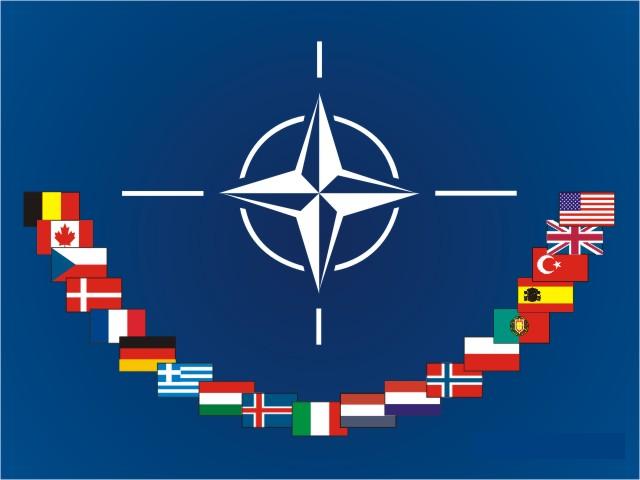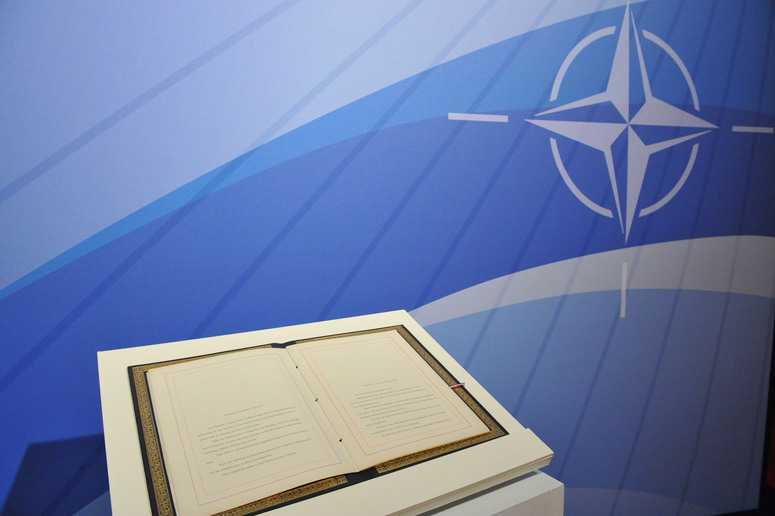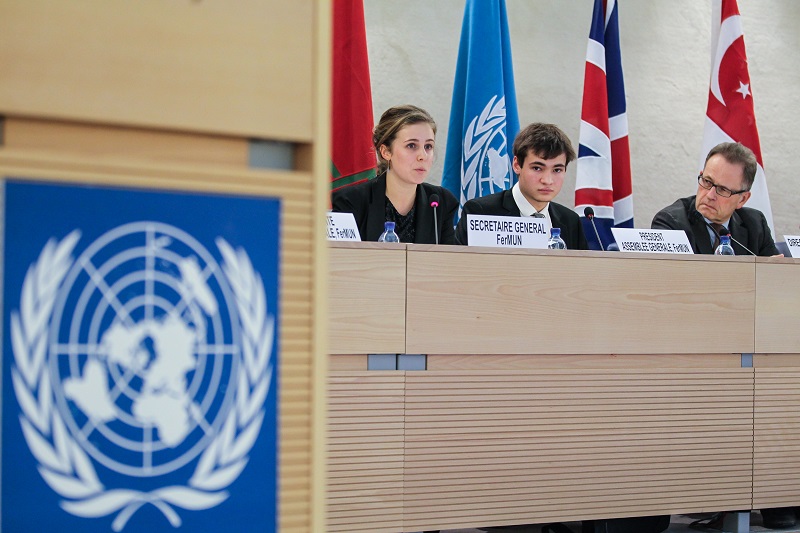The United Kingdom is set to host the upcoming 2014 biannual NATO summit for the first time since the closing of the Cold War. In the words of UK Prime Minister David Cameron, the historic summit is bound to mark an “important moment in the history of the alliance.”
Indeed, the summit will be significant for a number of reasons. With NATO forces expected to withdraw combat troops from Afghanistan at the end of 2014, the summit is expected to address both contemporary issues of international relations, and future threats to international stability. Accordingly, Cameron maintains that one of the most important goals of the summit is to “ensure that NATO remains a relevant, modern, adaptable force fit for the 21st century.”
[captionpix align=”right” theme=”elegant” width=”325″ imgsrc=”http://natoassociation.ca/wp-content/uploads/2013/10/David-Cameron-with-Rasmussen.jpg” captiontext=”UK Prime Minister David Cameron with NATO Secretary General Anders Rasmussen”]
For the first time in over ten years, the countries within NATO will be asked to redefine what it does. The world has changed drastically in the last ten years, and NATO needs to come up with new stances on shifting international ties, new security threats, and its traditional role of protecting and maintaining peace.
Redefining Relevance in Afghanistan
After the collapse of the Soviet Union in 1990, through foreign military intervention in Bosnia and later in Kosovo, NATO redefined itself as an instrument of European peace and stability. Yet even at the dawn of the 21st century, leading think tanks and academics were quick to question NATO’s purpose in a new age of multilateral diplomacy and increased levels of sovereign co-operation.
Over the last ten years these criticisms have been proven false. NATO has proved its capacity to evolve as an institution of collective action as well as its ability to perform as a functional instrument of peace, stability and progress.
Following a 2003 resolution by the UN Security Council, NATO took control of the International Security Assistance Force (ISAF) forces in Afghanistan in August of that year. ISAF was previously created in December of 2001 in order to uphold the peace and stability of Afghanistan after the successful victory of American and allied forces over the Taliban earlier that year. Under NATO jurisdiction, Taliban and al-Qaeda insurgents have been pushed back from Afghanistan into Pakistan, stabilizing the region and permitting the rise of democratic governance—with two presidential and two parliamentary elections taking place between 2004 and 2010. Although signs are pointing towards a more prosperous and democratic Afghanistan beyond the horizon, it remains to be seen whether institutional changes will have a lasting impact once NATO forces leave in 2014.
Towards that end, the NATO Training Mission in Afghanistan has successfully trained, equipped and empowered the Afghan National Security Forces since 2009. Control of military operations across the country has successfully shifted to the Afghan National Security Forces since June 18th, 2013. Afghanistan’s newfound institutional democracy and military security has opened doors for diplomatic negotiations over a lasting peace in the region, with Taliban representatives in Qatar ceding to negotiations with the United States.
Libyan Civil War and the Responsibility to Protect
In March of 2011, in the wake of Muammar Gaddafi’s threats of increasingly violent crackdowns on civilian populations in the Libyan Civil War, the world once again looked upon some form of foreign intervention to protect civilians. The United Nations Security Council soon called for an immediate end to then-Libyan leader Colonel Muammar Gaddafi’s assault on rebel forces, and authorized foreign military intervention in order to protect civilian lives. Just 10 days after the resolution was passed and a no-flight zone was established above Libyan airspace, the Arab League requested NATO military intervention, which was supported by 14 NATO members and 4 partner countries.
The NATO intervention – which resulted in the conclusion of the Libyan Civil War seven months after NATO’s entry – was justified under the doctrine of the “Responsibility to Protect” (often abbreviated as R2P), an idea in international relations which holds that the world’s community of states is responsible for protecting citizens within states from abuses by their own government.
Most recently, retired NATO Supreme Allied Commander James G. Stavridis called for joint American-NATO military action in Syria, in order to punish Bashir Al-Assad’s regime for its use of chemical weapons against civilians. Stavridis, amongst other specialists, cites the “responsibility to protect” as justification for ousting Assad’s regime.
[captionpix align=”left” theme=”elegant” width=”275″ imgsrc=”http://natoassociation.ca/wp-content/uploads/2013/10/NATO-ISAF-troops.jpg” captiontext=”ISAF soldiers at NATO base in Afghanistan”]
Post-Afghanistan: Forward Together
The current climate of the international systems continues to call for NATO to have a place in deciding world affairs. In an age of global collective action on international issues, and shifting geopolitical realities in the Middle East, now more than ever, NATO needs to remain a powerful and far-reaching alliance.
The Western allied powers comprising NATO have both the political will and the material means to support peace and democratic transition in the developing world. Although global collective action problems must be addressed at a global level of discourse, viable and timely action is often limited to those with the ready means of assistance. NATO is not a forum of discourse amongst sovereign nations, the United Nations exists for that very purpose. Rather, NATO exists today as an instrument of action that responds to the needs of the world to uphold democracy and human rights.
Recent Syrian cruise missile assaults on Turkish territory did not prompt a NATO response against Al-Assad’s regime, as the United Nations Security Council has not authorized any such intervention and Turkey did not request an Article 5 response, instead asking for a consultation under Article 4. In doing so, the country opted to send a message to the Assad regime that if Syria escalated to military action against Turkey, and Turkey calls on NATO for help under Article 5, there is no doubt that it would get that help, and would not require a resolution from the Security Council to act. Although it remains to be seen if NATO forces will be called upon to protect the Turkish territories in the event of any Syrian military escalation into the region, the time will certainly come for the world to call upon NATO once more.




